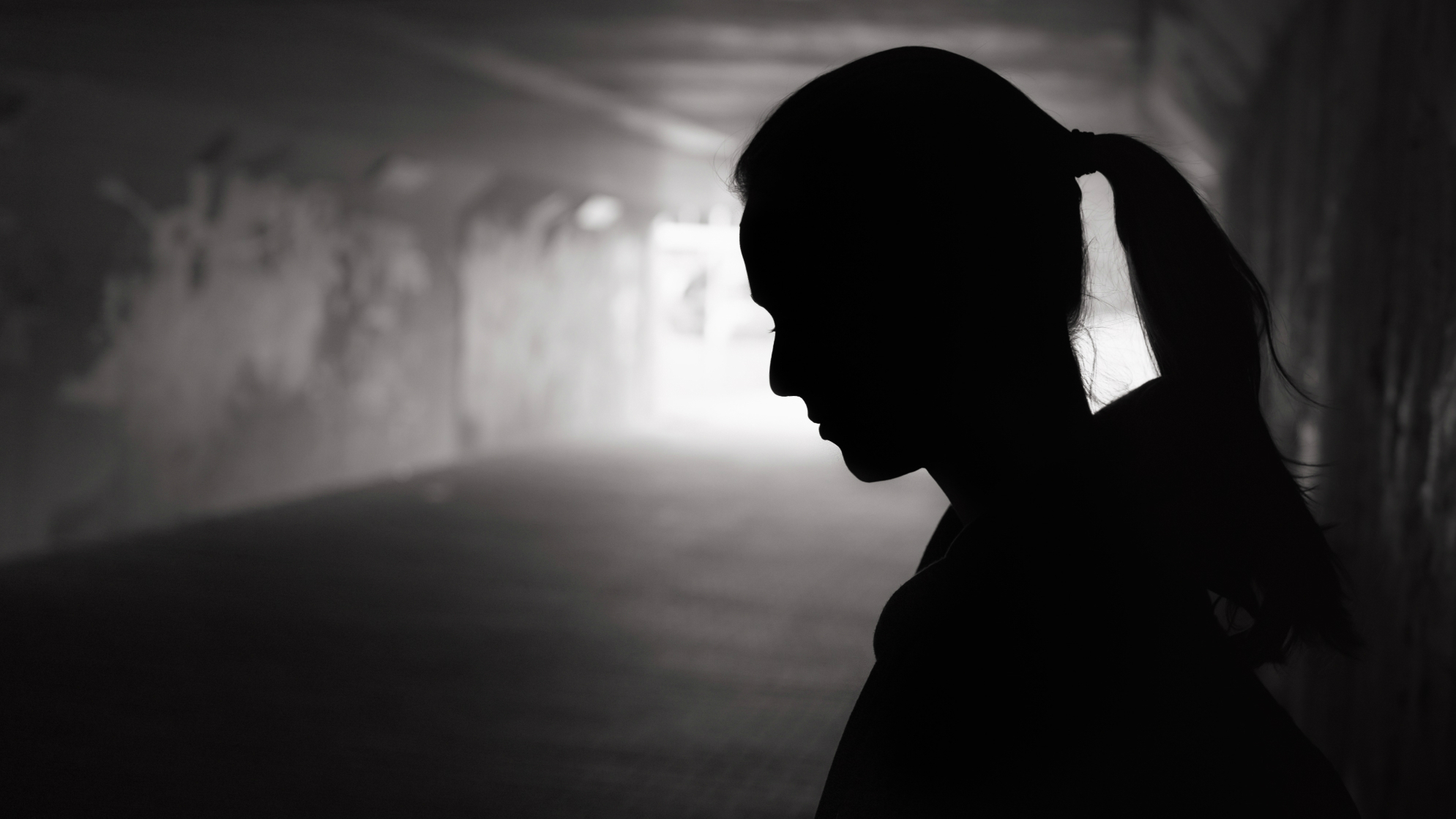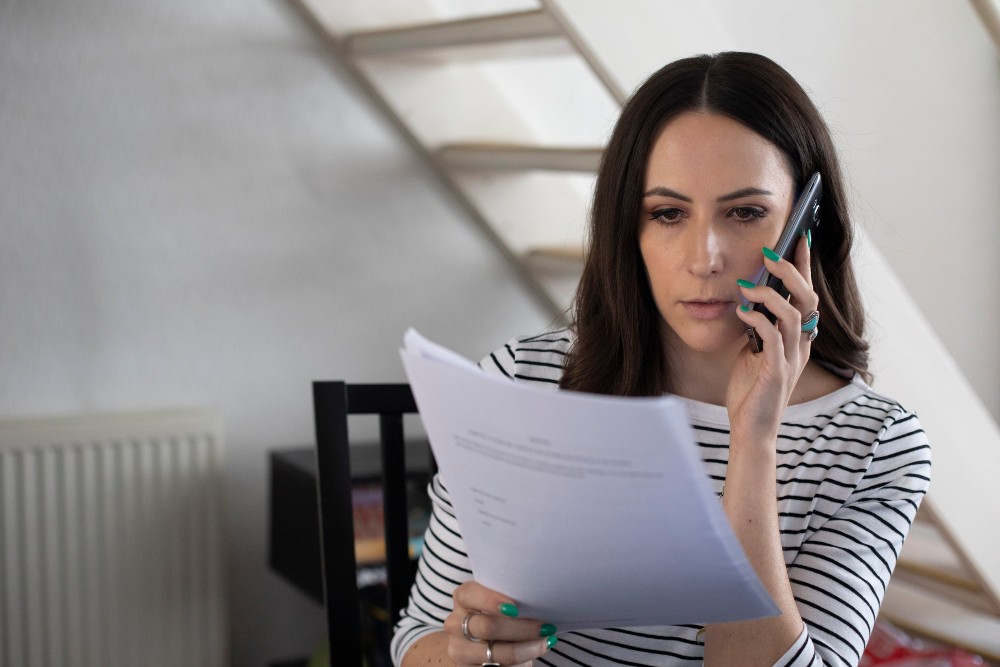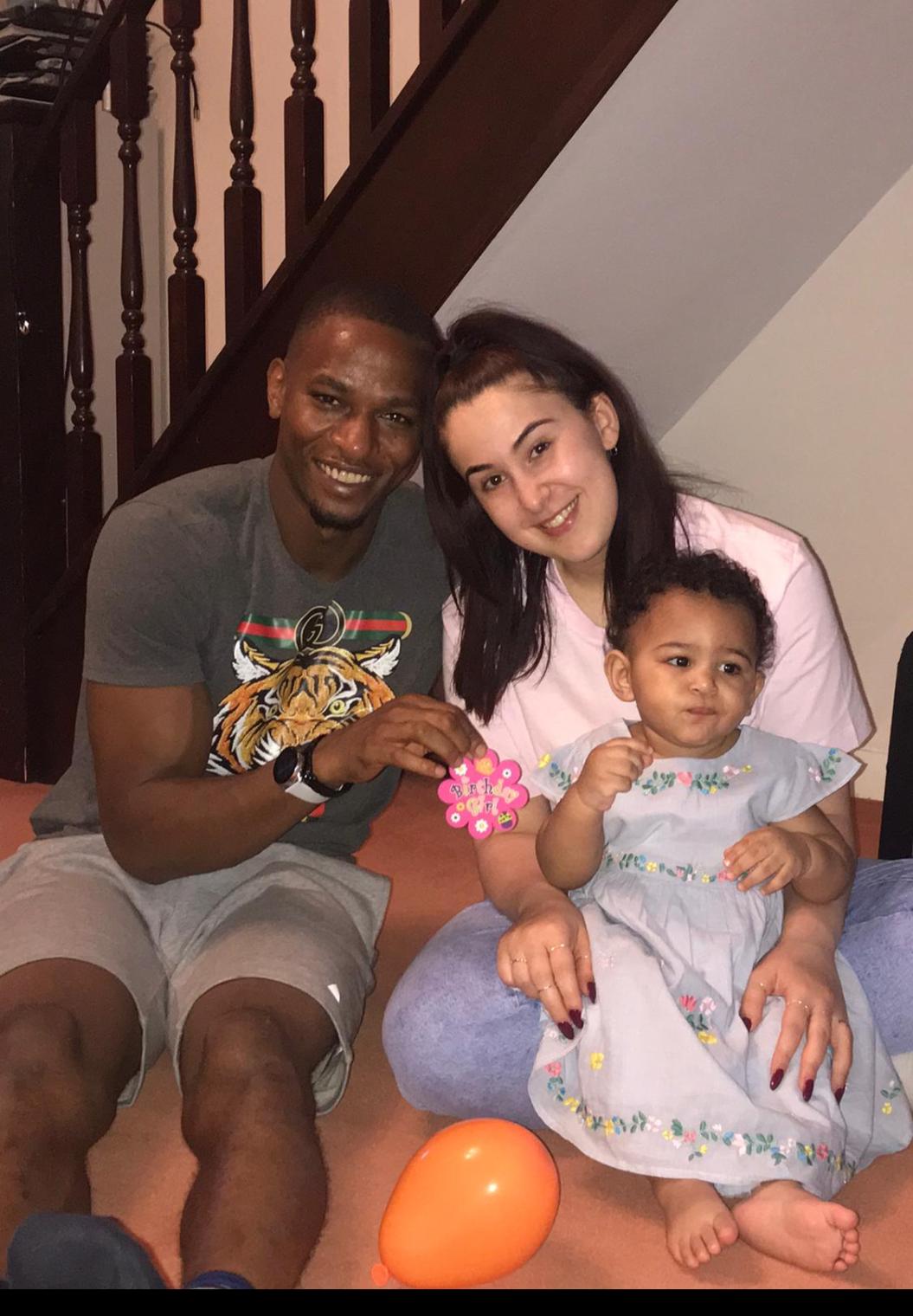The homeless crisis: "At 38 weeks pregnant I was filling out a homeless application form"
More people than ever live in fear of homelessness in the wake of the coronavirus pandemic. But this fear became a reality for Malak Nasir, a Masters graduate, who was forced to sofa-surf throughout her pregnancy


Celebrity news, beauty, fashion advice, and fascinating features, delivered straight to your inbox!
You are now subscribed
Your newsletter sign-up was successful
More people than ever live in fear of homelessness in the wake of the coronavirus pandemic. But this fear became a reality for Malak Nasir, a Masters graduate, who was forced to sofa-surf throughout her pregnancy
Despite government pledges that 'no one should lose their home as a result of the coronavirus pandemic' the latest research by housing and homelessness charity Shelter and YouGov has revealed that one in seven adults (14%) in England – the equivalent to over six million people are now more afraid of becoming homeless due to the Covid-19 pandemic. 13% of women - that's three million of us - said the current economic situation has made them more worried about becoming homeless.
Another shocking stat is 26% of private renting females agree that the current economic situation has made them more worried about becoming homeless. Female private renters are three times as likely as other women in other tenures (12%) to agree that they're more worried about becoming homeless. Although the bailiff ban has been extended to May 31, 2021, the fear of homelessness and its stark reality is not going away.
Polly Neate, chief executive of Shelter, told The Guardian recently: “Even with the bailiff ban extended, we know people will still become homeless every day as they have done throughout this pandemic. Homelessness doesn’t just come from legal evictions. It comes from breakdowns in relationships, fleeing domestic abuse, illegal evictions, or when those with no real protection under the law, like lodgers, are kicked out.”
With people’s incomes slashed, job losses mounting, and people struggling to pay their rent or mortgage, Shelter expects the pressure on its frontline services to only grow. To meet demand for its emergency service, Shelter has taken on 26 new housing advisers and doubled the number of calls answered by its free helpline.
Young mum Malak is one of the many people who have called the Shelter emergency helpline since the beginning of the Covid 19 pandemic. Thankfully they were able to help her, and in a bid to help more people during the rocky months ahead, the charity has launched an urgent appeal for Lives On The Line - you can donate here and help people just like Malak. Here she tells her story to Shelter's Dawn Smith about how she coped being heavily pregnant and homeless...
"A family row left me homeless"
Malak Nasir, 27, is a Masters graduate from Hackney, London
Celebrity news, beauty, fashion advice, and fascinating features, delivered straight to your inbox!
"As I filled out my homeless application I was bitterly aware of the irony. Working for the YMCA, it was my job to support people who were homeless every day. Yet now here I was, facing homelessness myself. Or perhaps I should say, here we were. I was 38 weeks pregnant, so there were two of us facing an uncertain future."
Malak was 26 at the time, and alongside her job was a student too - studying for a Masters in Affective Disorders. She already had a degree in psychology and was determined to give her baby a better life. But things had got a little rocky early in her pregnancy when a family fall-out left her homeless.

"I was still in a loving relationship with my baby’s dad, Marlon, but he lived with his mum, so me moving in wasn’t ideal. Instead I’d spent the rest of my pregnancy sofa surfing with friends. I’d hoped to find somewhere to rent, but I couldn’t find anywhere I could afford."
Two weeks before her due date, Malak had no choice but to contact Hackney council. She was allocated a room in a hostel. Malak's relief at finally finding some stability was shortlived.
Living in a hostel
"The room was so tiny it felt like a prison cell – too small even for a bed and cot, and with a window so high up I couldn’t even reach it. Worse, it was filthy. The thought of bringing my child up in such a hovel filled me with despair. So I called the friend I’d been staying with. ‘You’re stuck with me I’m afraid,’ I joked weakly."
Malak withdrew her application, and after giving birth to her daughter, Jamelia, in July 2019, she carried on trying to find somewhere to rent. Two months on, she still had no joy, so Marlon’s mum came to the rescue, and mum and baby moved into Marlon’s room.
"Yes it was a bit of a squeeze, but it was lovely that me, Marlon and Jamelia could be a family at last. And it meant we’d a bit of time to save some money for a place of our own. I went back to work in January 2020, my Masters complete, hopeful that this was the year we'd find our own place. And then of course, the pandemic struck.
"Marlon’s mum was in a high-risk group, and with me working alongside vulnerable communities every day as a key worker I was terrified of catching and passing Covid-19 on. Though I washed my hands and changed my uniform as soon as I got home, I felt so anxious. I needed my job to support my family, but I couldn’t put Jamelia’s nan at risk. ‘I have to find somewhere else to live,’ I told Marlon.

"Trouble was, I couldn’t fall back on my friends either, as everyone was trying to keep safe. So I contacted the council and was told they had a place for me and Jamelia at a hostel – over an hour’s drive away in Welwyn Garden City. It was such a shock. It was miles away from my work, from Marlon, and I didn’t know a soul there. But I had no choice."
Feeling abandoned
"That first night was one of the scariest of my life. The studio room was drab and filthy. There was nothing to eat, and the nearest shop was a 30-minute walk away. I felt utterly abandoned and after giving Jamelia, her bottle, I cried myself to sleep. As the next day dawned, I knew I couldn’t stay here. How could I get to work, who would look after Jamelia?"
Desperate, Malak looked online for help, which is where she found out about the Shelter helpline. Malak rang, just hoping for some advice. Shelter rang Hackney council straight away, and within days they’d secured her a place (a studio, with its own kitchen and shower) at a hostel back in Hackney. Due to Covid restrictions, Marlon wasn’t allowed to visit. So he decided to move in so they could finally live as a family. That was in April 2020. A year on, the family are still there. The council has told Malak she may be on the waiting list for 12 years.
Finding a home
"My heart sank. I'm hugely grateful to be back in London with a roof over my head, but the thought of my daughter growing up in a hostel broke my heart. After all my hard work to get a degree in psychology, then my Masters, I was determined to keep striving for a better life for my family.
"So when I found out about a subsidised rental scheme for keyworkers I applied, and in April 2021 I was given the keys to a two-bedroom flat in Tottenham. I’ve a three-year Assured Shorthold Tenancy, which means stability for me and my daughter. I was so overjoyed I could have wept. For now Marlon is remaining at his mum’s, but I’m hoping we can be together soon. A proper family in a safe home, with hopes, dreams and plans for the future."
* To support Shelter’s helpline please visit: england.shelter.org.uk/donate/helpline
Maria Coole is a contributing editor on Marie Claire.
Hello Marie Claire readers – you have reached your daily destination. I really hope you’re enjoying our reads and I'm very interested to know what you shared, liked and didn’t like (gah, it happens) by emailing me at: maria.coole@freelance.ti-media.com
But if you fancy finding out who you’re venting to then let me tell you I’m the one on the team that remembers the Spice Girls the first time round. I confidently predicted they’d be a one-hit wonder in the pages of Bliss magazine where I was deputy editor through the second half of the 90s. Having soundly killed any career ambitions in music journalism I’ve managed to keep myself in glow-boosting moisturisers and theatre tickets with a centuries-spanning career in journalism.
Yes, predating t’internet, when 'I’ll fax you' was grunted down a phone with a cord attached to it; when Glastonbury was still accessible by casually going under or over a flimsy fence; when gatecrashing a Foo Fighters aftershow party was easy-peasy-lemon-squeezy and tapping Dave Grohl on the shoulder was... oh sorry I like to ramble.
Originally born and bred in that there Welsh seaside town kindly given a new lease of life by Gavin & Stacey, I started out as a junior writer for the Girl Guides and eventually earned enough Brownie points to move on and have a blast as deputy editor of Bliss, New Woman and editor of People newspaper magazine. I was on the launch team of Look in 2007 - where I stuck around as deputy editor and acting editor for almost ten years - shaping a magazine and website at the forefront of body positivity, mental wellbeing and empowering features. More recently, I’ve been Closer executive editor, assistant editor at the Financial Times’s How To Spend It (yes thanks, no probs with that life skill) and now I’m making my inner fangirl’s dream come true by working on this agenda-setting brand, the one that inspired me to become a journalist when Marie Claire launched back in 1988.
I’m a theatre addict, lover of Marvel franchises, most hard cheeses, all types of trees, half-price Itsu, cats, Dr Who, cherry tomatoes, Curly-Wurly, cats, blueberries, cats, boiled eggs, cats, maxi dresses, cats, Adidas shelltops, cats and their kittens. I’ve never knowingly operated any household white goods and once served Ripples as a main course. And finally, always remember what the late great Nora Ephron said, ‘Everything is copy.’
